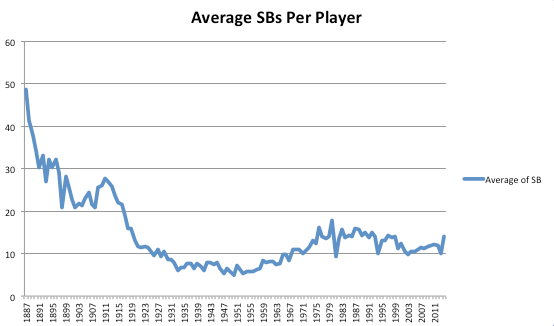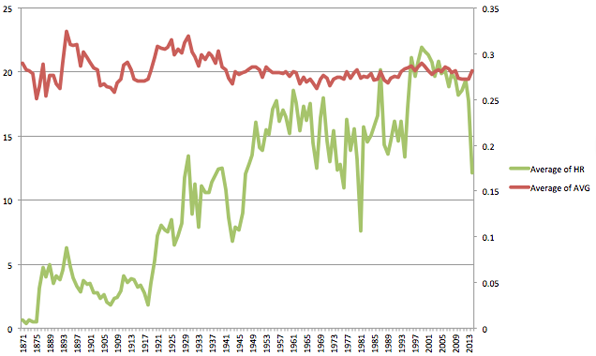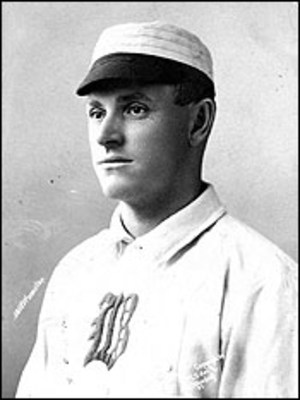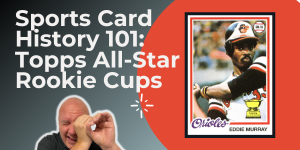The MLB Hall of Fame results came out last week, and I thought it would be interesting to take a look at Fantasy Baseball from a historical perspective. So I looked at the top Fantasy Baseball seasons of all time, and thought about how those seasons give us a glimpse into larger offensive trends and the reasons for those developments.
Top Fantasy Baseball Seasons
[table id=35 /]
The original Billy Hamilton, as we will call him, played from 1888 to 1901 for the Phillies, Beaneaters, and Cowboys, was appropriately named “Sliding Billy,” and was voted into the Hall of Fame by the Veterans Committee in 1961.
While Hamilton set numerous records in his career, the numbers that he put up in 1894 allowed him to have the greatest Fantasy Baseball season of all time. And they tell us something about the offensive trends of that era and why they occurred.
In 1894, Hamilton set the all-time record for most runs in a season with 198, and he led the league in stolen bases with 98 swipes. Hamilton is also tied for the major-league record for most stolen bases in a game with seven, and in 1937, Hamilton said, “I was and will be the greatest base stealer of all time.”
Then, out of nowhere, stolen bases began to plummet.

Average number of stolen bases per qualified players from 1887 to 2013.
Players didn’t become slower over night, and catchers didn’t get surgery to have mechanical arms attached to their shoulders.
The rules changed.
In the 1900s, players were credited with stolen bases as they are today, but they were also accredited in ways dissimilar from modern baseball. A website on nineteenth century baseball reveals that in the 1900s, “If a base runner makes a start and a battery error is made, the runner should receive the credit of a stolen base and the battery error is scored against the player making it. Should a base runner overrun a base and then be put out; he should receive the credit of a Stolen Base.” In plain English, a battery error is a dropped third strike or a passed ball, and as far as players getting credit for a stolen base even after he overran the base, that’s like if a guy “finished” before he actually hooked up with a girl, yet he still got credit for it — you just look stupid.
Numbers aside, imagine how many more passed balls and dropped third strikes there probably were in the 19th century when catchers used mitts you could use to take a pizza out of the oven with, but not really catch a baseball.
In essence, the rules curbed offense more than a swing in talent actually did.
Thinking About Offense Today …
From 2012 to 2013, home runs dropped at one of the largest rates in baseball history. In 2013, players averaged as many home runs as they did in 1977 — and this is all while batting average has trended down.

Batting average and home run averages per qualified players since 1871.
Two players — Miguel Cabrera and Chris Davis — hit over 40 home runs last year, while there were 13 players that hit 40 or more in 1999. Also in 1999, 24 players hit 35 or more dingers, but in 2013, only five players hit at least 35 homers.
When you look at the top Fantasy Baseball seasons since 1970 (listed below), there are only two players on that list post-2001: Alex Rodriguez (2007) and Matt Kemp (2011).
Kemp was able to push his way onto this list with a season that was one home run shy a 40-HR/40-SB season, while it will still be debated whether Rodriguez did it with skill or the syringe.
Top Fantasy Baseball Seasons Since 1970
[table id=36 /]

It’s appropriate to show some respect for that mullet and, more so, Larry Walker’s 1997 batting line.
Like the deflation of stolen bases upon an amendment to the rules in the early 20th century, home runs and offensive production has dipped in the early 21st century because of a rule change — drug testing.
Trends are often a result of subtle changes to the rules that we are unsure of how they will affect the game until years after those alterations have been made. Billy Hamilton was the greatest base stealer of all time because the rules allowed him to be, just like Barry Bonds was the greatest home run hitter of all time because of the rules that existed while he played.
It’s unfair to judge people and players by a standard that exists after their time.
People used to think smoking tobacco was good for you; people used to burn their trash in their back yards; Coca-Cola used to be made with cocaine.
Culture deemed these activities to be acceptable while they happened and were only considered reprehensible after the fact. The same can be said for the steroids era.
 Devin Jordan is obsessed with statistical analysis, non-fiction literature, and electronic music. If you enjoyed reading him, follow him on Twitter @devinjjordan.
Devin Jordan is obsessed with statistical analysis, non-fiction literature, and electronic music. If you enjoyed reading him, follow him on Twitter @devinjjordan.

























